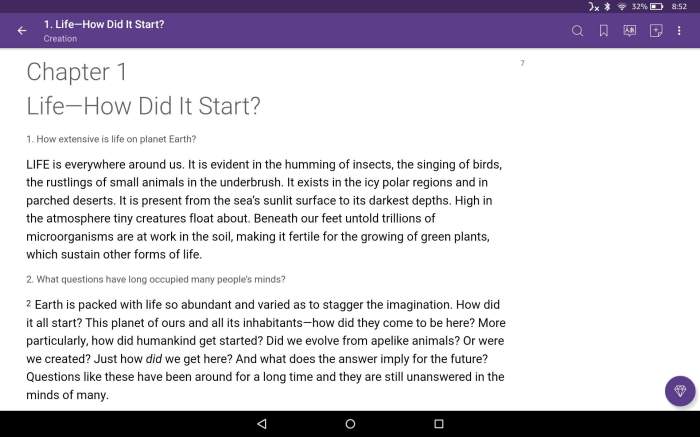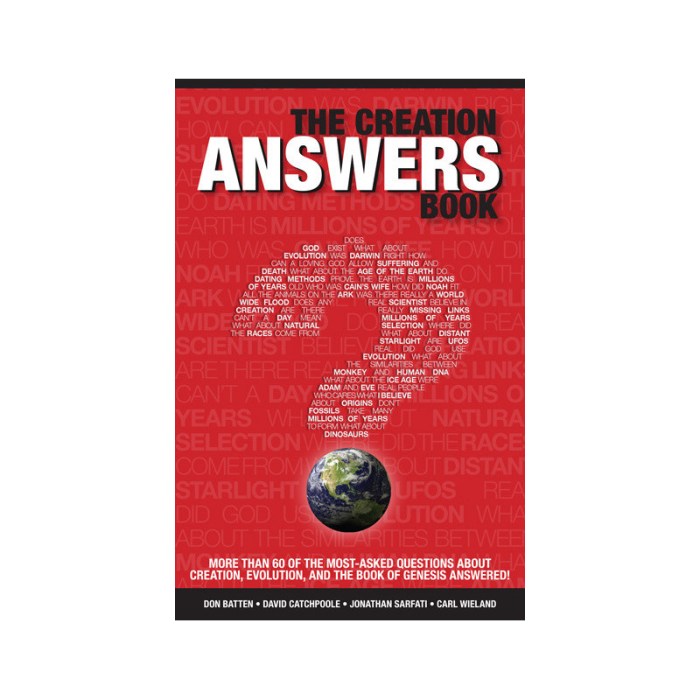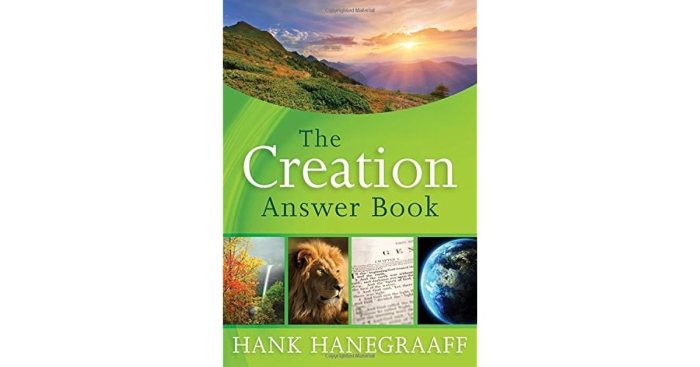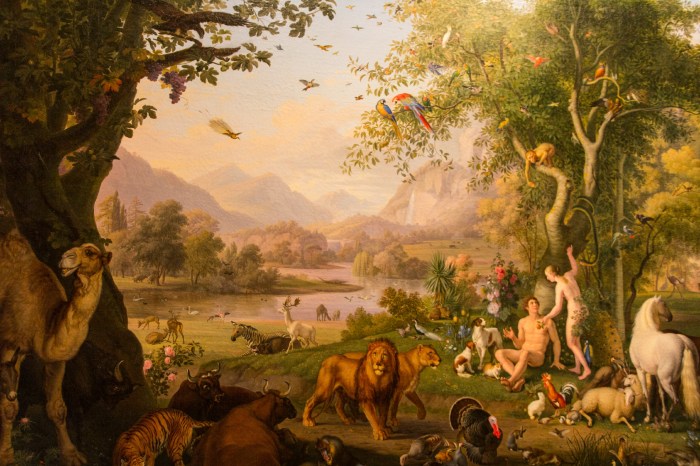According to our textbook the original creation – Delving into the intriguing realm of “According to Our Textbook: The Original Creation,” this discourse embarks on a captivating exploration of the Genesis narrative, inviting readers to engage with the fundamental questions surrounding the origin and nature of existence. Through an in-depth analysis of the biblical account, scientific perspectives, cultural interpretations, and philosophical implications, this discourse unravels the profound significance of creation, its impact on human understanding, and its enduring legacy in art and literature.
As we delve into the intricacies of the Genesis narrative, we encounter a rich tapestry of symbolism, metaphor, and profound insights into the nature of God, the universe, and humanity’s place within it. By examining the scientific theory of evolution and its supporting evidence, we gain a deeper appreciation for the intricate processes that have shaped the diversity of life on Earth.
Furthermore, we explore the diverse cultural interpretations of creation, uncovering the profound influence of religion, mythology, and folklore on our understanding of the origins of the cosmos.
Genesis Narrative

The Genesis narrative, found in the first book of the Hebrew Bible, provides an account of the creation of the universe and life. According to this account, God, the creator, spoke the world into existence over a period of seven days.
God’s role in the creation process is central, as He is depicted as the sole creator and sustainer of all things. The account emphasizes God’s power, wisdom, and goodness, as He creates the world with order, beauty, and purpose.
Significance of the Seven Days of Creation
- Symbolic Representation: The seven days of creation symbolize the completeness and perfection of God’s work.
- Order and Structure: The narrative presents creation as a process that unfolds in a specific order, with each day marking a distinct stage.
- Divine Rest: The seventh day represents God’s rest after completing creation, signifying the perfection and completion of His work.
Scientific Perspective: According To Our Textbook The Original Creation
The scientific theory of evolution provides an alternative explanation for the origin and development of life. According to this theory, species evolve over time through the process of natural selection.
Natural selection occurs when individuals with advantageous traits are more likely to survive and reproduce, passing on their traits to their offspring. Over time, this leads to the gradual accumulation of favorable traits within a population, resulting in the emergence of new species.
Evidence Supporting the Theory of Evolution, According to our textbook the original creation
- Fossil Record: The fossil record provides evidence of the gradual changes in species over time.
- Comparative Anatomy: The similarities in anatomical structures between different species suggest a common ancestry.
- Molecular Biology: Genetic studies show that all living organisms share a common genetic code.
Cultural Interpretations

Different cultures have developed their own interpretations of the origin of the universe and life. These interpretations are often influenced by religion, mythology, and folklore.
Creation stories play a significant role in shaping cultural identity, providing a sense of belonging and a framework for understanding the world.
Influence of Religion, Mythology, and Folklore
- Religious Beliefs: Many religions have their own creation narratives, which often involve divine beings or supernatural forces.
- Mythological Tales: Myths often provide imaginative and symbolic accounts of creation, reflecting the beliefs and values of a particular culture.
- Folklore Traditions: Folklore includes stories, legends, and proverbs that often contain elements of creation and the origins of the world.
Philosophical Implications

The concept of creation has profound philosophical implications, raising questions about the existence of God, the meaning of life, and the nature of reality.
The relationship between creation and the existence of God is a central philosophical debate. Some philosophers argue that the existence of the universe requires a creator, while others propose naturalistic explanations.
Role of Creation in Understanding the Meaning and Purpose of Life
- Meaning and Purpose: The concept of creation can provide a sense of meaning and purpose to life, as it suggests that the universe and human existence have a divine or purposeful origin.
- Ethical Implications: The belief in a creator can influence ethical values and moral decision-making.
- Existential Questions: Creation narratives often address existential questions about the nature of existence, mortality, and the search for meaning.
Creation in Art and Literature

Creation narratives have inspired countless works of art and literature throughout history. These works often explore the themes of human creativity, the nature of existence, and the search for meaning.
Creation myths and themes are used to explore the human condition, the relationship between humanity and the divine, and the complexities of the natural world.
Symbolism and Metaphors Associated with Creation
- Light and Darkness: Creation stories often depict the emergence of light from darkness, symbolizing the triumph of good over evil.
- Chaos and Order: The creation process is often portrayed as a transformation from chaos to order, representing the imposition of divine or human order on the natural world.
- Birth and Rebirth: Creation narratives often feature themes of birth and rebirth, symbolizing the renewal and transformation of life.
User Queries
What is the significance of the seven days of creation in the Genesis narrative?
The seven days of creation represent a symbolic framework that emphasizes the order, purpose, and divine intentionality behind the creation of the universe and all that exists within it.
How does the scientific theory of evolution complement or challenge the Genesis narrative?
The scientific theory of evolution provides a naturalistic explanation for the diversity of life on Earth, complementing the Genesis narrative by offering insights into the mechanisms and processes that have shaped the development of species over time.
What role do cultural interpretations play in shaping our understanding of creation?
Cultural interpretations of creation reflect the unique perspectives, beliefs, and values of different societies, influencing how individuals perceive and relate to the origins of the universe and life.